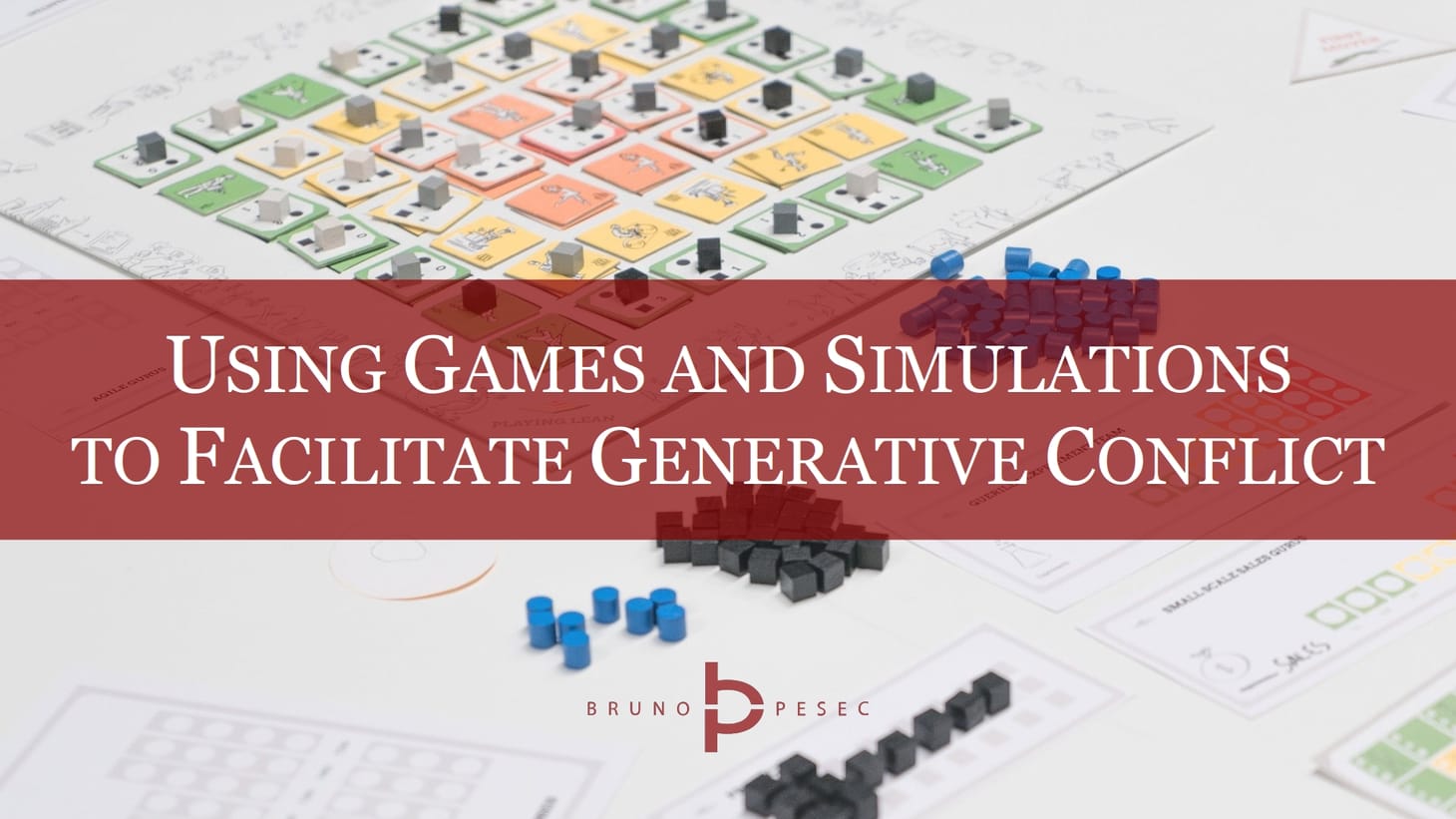Using Games and Simulations to Facilitate Generative Conflict
An exploration of generative and destructive conflict; play and social success; and role of games in contested spaces.

I'm happy to share that Using Games and Simulations to Facilitate Generative Conflict article I've coauthored with Andrew Kidd has been published in the Challenging the Future with Lean book.
Abstract:
Lean educators and practitioners often find themselves in conflict with existing structures, ways of work, and habits. We can differentiate destructive and generative conflict. The former usually leads to waste. The latter, on the other hand, has the potential to further the individuals’ capability development, enhance their social skills, and contribute to mature discourse.
Games and simulations provide a safe environment to surface and explore conflict, thus defusing escalation of violent tensions before they begin. Creating a simulacrum of reality through situations perceived as “outside" allows the participants to engage in generative conflict without tensions rising and escalating to violent behaviours. In this paper, the authors explore the connection between play and social success, as well as several examples of using a board game to facilitate generative conflict.
Pešec, B., & Kidd, A. (2024). Using games and simulations to facilitate generative conflict. In T. van Kollenburg, A. Kokkinou, & O. McDermott (Eds.), Challenging the Future with Lean (Vol. 681, pp. 201–208). Springer Nature Switzerland. https://doi.org/10.1007/978-3-031-63265-5_15
Bruno Unfiltered
Subscribe to get the latest posts delivered right to your inbox. No spam. Only Bruno.




